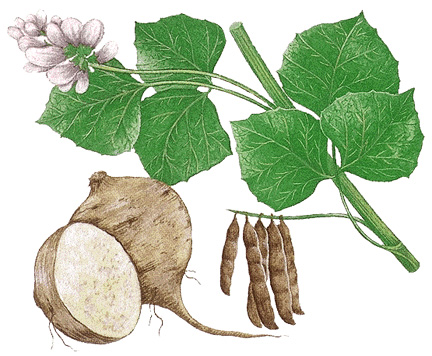Jicama, << HEE kuh muh, >> is a type of climbing vine grown for its fleshy, edible tubers (thick underground stems). The jicama plant is cultivated in Mexico, Central America, China, and India. It is also called yam bean and Mexican turnip. It is a legume (member of the pea family) and bears seeds in pods.
Each jicama plant produces from one to several tubers. The tubers are either round like beets or long and slender like icicles. Young tubers have brown skin and sweet, white flesh. They weigh 1/2 to 21/2 pounds (0.2 to 1.1 kilograms) when harvested. People eat the tubers of jicama plants raw in salads or as snacks. People also eat the tubers cooked in soups. The tubers of jicama plants are rich in calcium, iron, vitamin C, and protein.

The stems, leaves, pods, and seeds of jicama plants contain a chemical compound called rotenone and may be poisonous. Rotenone is a natural insecticide, and so jicama plants resist insect attack.
